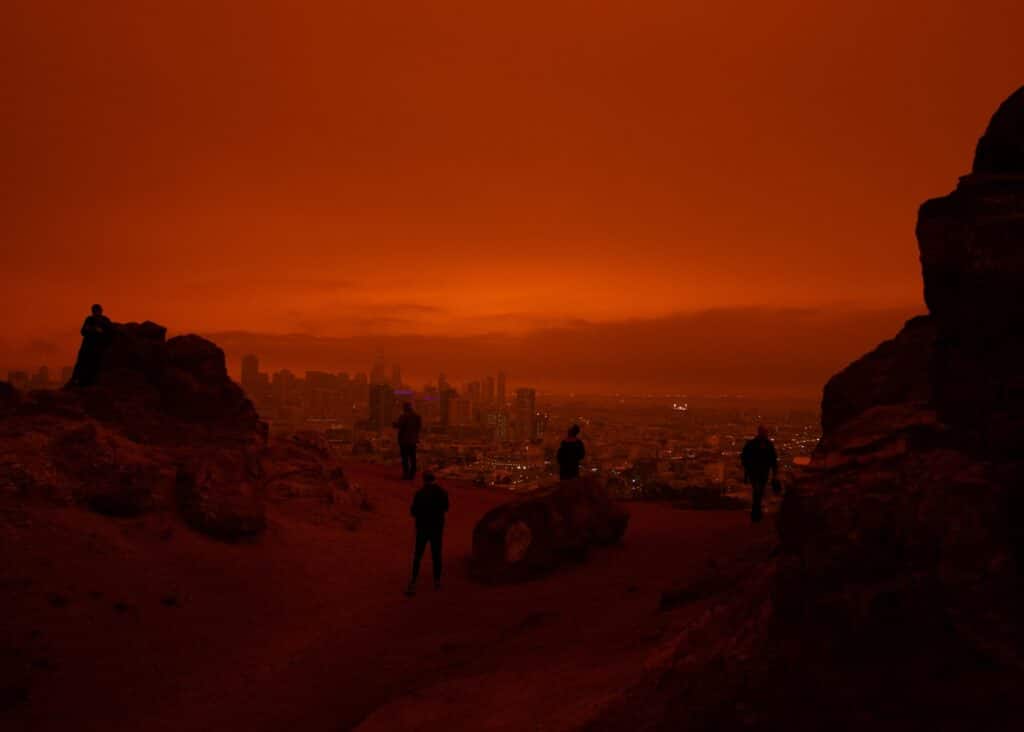
About a year ago I argued that our government’s vaccination policy has nothing to do with improving public health, but is rather a ploy to induce the false sense of security necessary to get back to business-as-usual.
And by “business-as-usual,” I mean an intention to move us all back into the marketplace where we will work and spend and stoke the expansionist flames of rapacious global capitalism. A global pandemic is threatening to entrenched powers only because productivity will be compromised. The loss of life is of little concern, and you can be assured that, in addition to fast-tracking pharmaceuticals to mollify our fears, Big Tech is building out massive contingency plans to automate or otherwise shore up the global economic engine against the unpredictability of fragile human resources.
I further argued that returning to the status quo is exactly the wrong move. The status quo is what brought us the pandemic in the first place, and whether you agree with that opinion or not, a 1972 MIT study predicted societal collapse by 2040. The reason: unchecked economic growth.
And seven months to the day of my blog post, this Vice article publicized the results of a 2020 study from the Yale Journal of Industrial Ecology validating the 1972 paper, stating:
. . . the current business-as-usual trajectory of global civilization is heading toward the terminal decline of economic growth within the coming decade—and at worst, could trigger societal collapse by around 2040.
The reason is simple, as most truths are. Resources are limited. An expansionist philosophy cannot coexist alongside that reality.
Where we are too stupid or shortsighted to build limits into our behaviors and policies, they will manifest themselves. I argued that pandemics represent one such limit, reducing populations to minimize demand for critical resources, and this was readily observed. The environmental effects were immediate with improved water and air quality reported around the world.

We could learn from the pandemic and actually choose a different path. We don’t have to live in a globalized world where the 22 richest men have more wealth than all the women in Africa, where labor is outsourced to take advantage of the most vulnerable people, and deadly contagions level the entire planet within days or weeks.
We could build hyperlocal economic models that keep us focused on our families and neighbors, leaving other regions to do the same. And we’d better start taking that idea seriously.
Research suggests that unchecked global economic expansion cannot continue, but will rather stop and drop off precipitously over the next 10-20 years. What is meant by “societal collapse” is the immediate and likely violent societal recalibration that will occur as a result. Prices will skyrocket, governments will vie for resources, almost certainly going to war over raw materials that cannot otherwise be obtained. Standards of living will diminish and yes- people will die.
While this is not a post about COVID vaccines per se, it is my continued belief that this vaccination program is a stopgap measure to keep the economic engines moving while the world’s richest and most powerful people develop comprehensive technologies to stave off societal collapse for as long as possible.
The end is coming, and they know that. A healthy and thriving global population will only burn through resources more quickly. We are necessary, but only for a time.
The article goes on to state that we have a rapidly closing window of opportunity where investment in technology and public services just might turn things around. I will become more optimistic when I start to see government subsidized gym memberships paid for by taxes imposed on junk foods and other markers of a genuine investment in the health and well-being of people.
But I’m not going to hold my breath. History has shown that even the most basic humanitarian considerations must be fought for. People died for the right to vote in this country, for the right to be even be considered wholly human. If things are going to change, it’s going to come from us.
If we survived the pandemic, this may be our last opportunity to pause and reconsider the way we are living. And no, driving a Tesla isn’t going to fix this.
Dust and Tribe abandoned social media. We do nothing to improve search-engine optimization. We don’t publish tags to make our posts easier to find because we don’t want a global audience.
We made a decision to focus exclusively on programming in California and neighboring states, the region where many of our facilitators live. We drastically reduced the availability of merchandise, much of which comes from overseas. We have prioritized local organizations as beneficiaries from our charitable works. Events are hosted either online or outside out of respect for an illness that continues to challenge our communities. We have expanded our backpacking programs to teach people the importance of resilience and minimalism.
We have a lot more work to do, and so do you.
Let us know how you’re preparing for societal collapse in the comments below.
You must be tired of listening to me. Reach out via our Contact Page if you’d like to write for us.
“And no, driving a Tesla isn’t going to fix this.”
PREACH BROTHA! 😂
But no, on a more serious note, I can’t believe I missed this blog post. It’s so relevant and it echoes the concerns I’ve been having of late, which is unchecked economic growth, increased utilization of resources/destruction of the environment, and the coming societal collapse. Not sure what I’m gonna do to prepare… maybe move closer to D&T home base? 🤔
Surely there must be a need for a physician up there 😀
An old-timey rural doctor making house-calls would do very well up here!